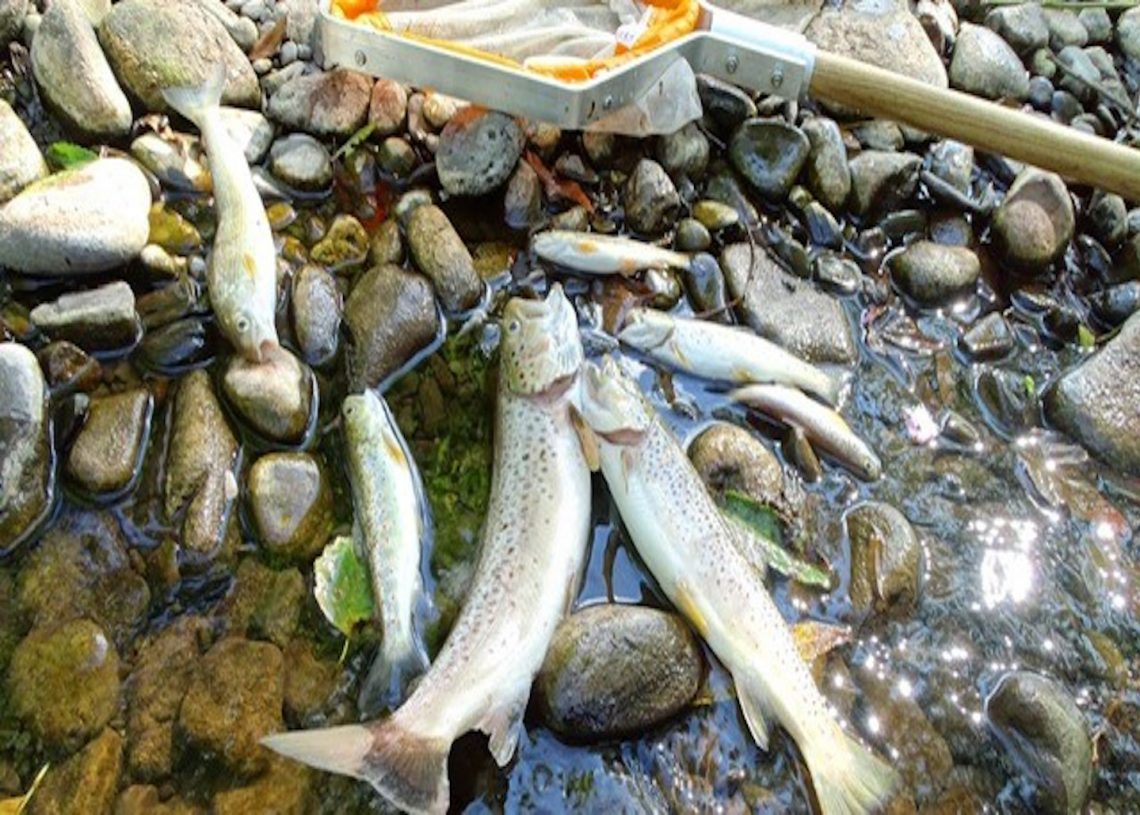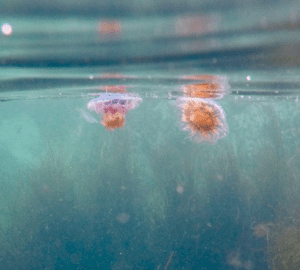
BBC Wales investigates river pollution
The ecological decay of the River Wye and its tributaries are the subject of an investigative BBC programme examining phosphate pollution.
Investigative series BBC Wales Investigates turned its lens on the River Wye on Monday evening, examining sewage and agricultural pollution in the river and its tributaries.
The Wye – a popular river for swimmers, canoeists and a haven for wildlife – made national headlines in 2020 when photos showed a stretch of the river looking a luminous green, overcome by algae.
Campaigners claim the algal blooms are a direct result of the increase in intensive poultry farms along the Wye’s catchment. These farms produce large amounts of chicken excrement, which are high in phosphorus. A study by Lancaster University has concluded that the Wye catchment’s soils are receiving an excess of over 2,000 tonnes of phosphorus every year.
A feast for algae
Presenter Wyre Davies says in the programme, “When human and animal waste gets into a river, not only is it bad for our health, it’s also full of nutrients like phosphate, which act like a superfood for algae. When this algae gets into a river, it strips the water of oxygen, killing off plant and animal life.”
According to the report, one third of rivers in Wales are failing phosphate targets. While in some areas, the pollution is mainly from the sewage system, in others it’s largely agriculture. Studies show that more than 70 per cent of phosphates in the Wye come from rural land run-off [source: NRW & Welsh Water].
A time for action
Speaking to representatives from National Resources Wales (NRW), Welsh Government, local farmers and swimmers, in the programme Wyre Davies investigates the impact of phosphate pollution in the river, who’s to blame, and what is being done to save the Wye from ecological collapse.
Chief Executive of Afonydd Cymru Gail Davies-Walsh believes the river can be saved, but time is running out. “It is salvageable but it’s going to take a huge amount of working together and it’s going to require all of those sectors to play their part,” she says in the report. “What we see at the moment is quite a lot of delays in that happening, and we cannot wait any longer.”
BBC Wales Investigates What’s Killing Our Rivers is available to view on BBC iPlayer.
Read our guide to how to spot a clean river.








